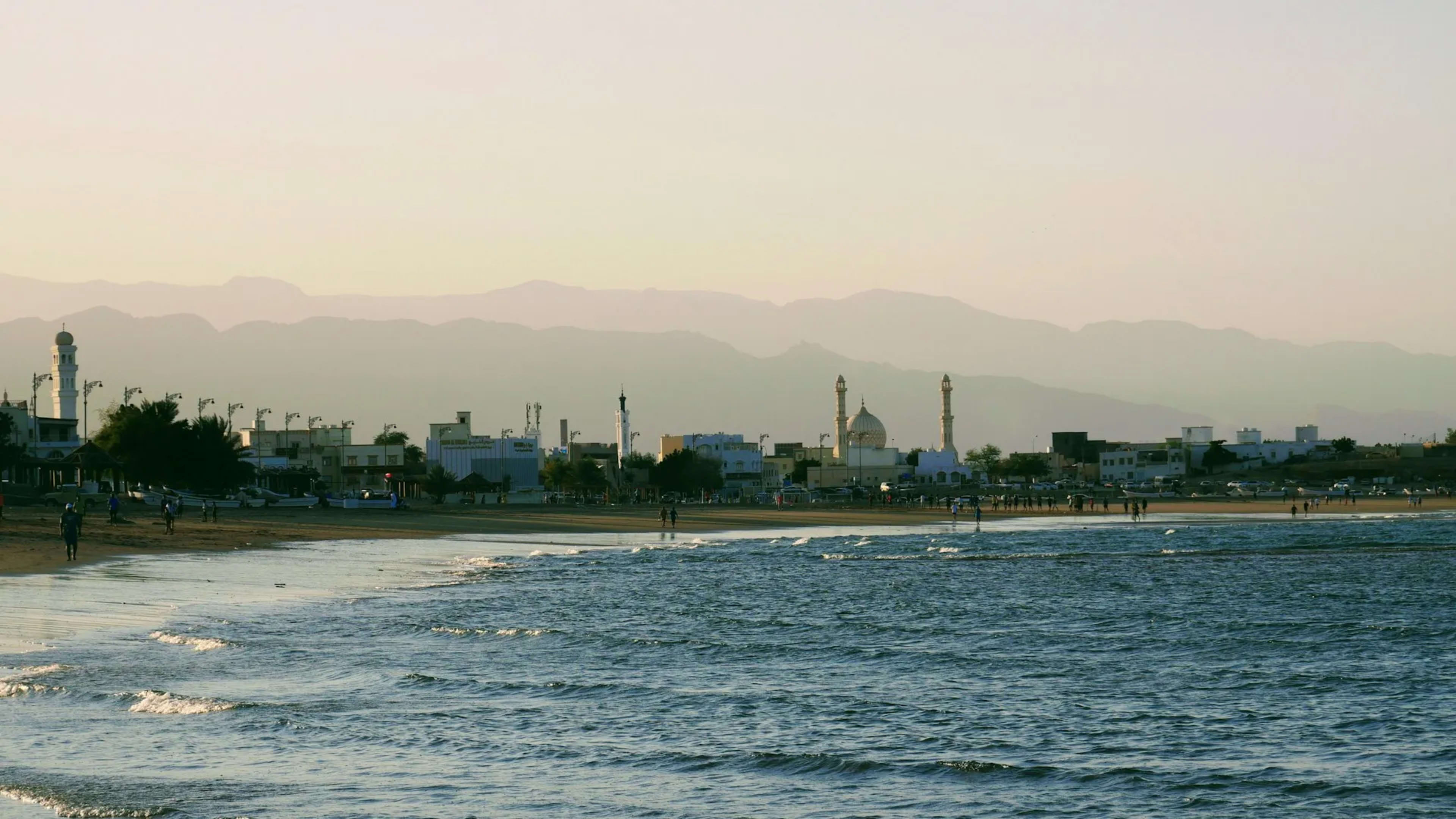Location & Transportation
The port is located in Sur harbor, just on the outskirts of town. I found that navigating around Sur means relying mainly on taxis. Regular bus services are very limited here, so I always recommend grabbing an engaged taxi—simply ask for an "engaged taxi" to have the whole vehicle for your group. Taxis in Oman are run by local drivers and are reasonably priced, making them a friendly and efficient way to get around.
Sightseeing
Sur is a captivating town with plenty to explore on foot. Here are some highlights I enjoyed:
- Stroll through the authentic souk where you can admire traditional Arabic wares and soak in the local atmosphere.
- Visit historic forts and the small marine museum that celebrate Sur’s proud maritime heritage.
- Watch skilled craftsmen building dhows right by the quay—a tradition that still thrives today.
- Enjoy a walk along the harbor and experience the charm of the coastal architecture.
- Venture a short drive to nearby attractions:
- Head to Ras Al Hadd (about 45 km away) for an unforgettable turtle watching experience.
- Take a one-hour taxi ride to the breathtaking Wahiba Sands and immerse yourself in the beauty of Oman's desert landscape.
Tours & Excursions
Since public transport is limited in Sur, planning excursions with a taxi is your best bet. I suggest considering:
- A guided tour of the dhow-building yards to learn about this ancient craft.
- A coastal excursion to Ras Al Hadd for turtle watching (seasonal) or even a day trip into the Wahiba Sands for a desert adventure.
- Local boat tours along the harbor for a closer look at traditional fishing techniques and maritime life.
It‘s a good idea to compare shore excursion costs between what your cruise line offers and options like Viator and GetYourGuide. They often provide lower prices and include customer reviews and ratings to help you choose the best option. They may also offer more more flexible cancellation or rescheduling policies than those available through your cruise line. However, while booking independently might give you more variety and potentially better rates, be mindful of your schedule - cruise line excursions are typically coordinated to match your ship‘s schedule with guaranteed pick-up and drop-off times.
There is also a great resource for finding local guides at Tours by Locals. Tours by Locals connects you with local guides who can help you plan a private personal tour, guide you, and get you back to your ship on time. You can also check out Rome2Rio for local transportation options. It is a great resource for finding how to get from one place to another, including public transportation, taxis, ferries, and more.
Shopping
Sur's souk is a treasure trove of local culture. While wandering its narrow lanes, you can pick up:
- Traditional crafts and souvenirs, including Omani frankincense and handmade textiles.
- Spices, perfumes, and local delicacies that make perfect keepsakes.
- Unique items that capture the genuine Arabic feel of the town.
Dining
Dining in Sur is a delightful experience for any food lover. The town offers a mix of flavors, combining fresh seafood with traditional Omani cuisine. During my visit, I enjoyed:
- Dining at local eateries along the harbor where grilled fish and shrimp rule the menu.
- Sampling local specialties like Shuwa—slow-cooked, marinated lamb that melts in your mouth.
- Sipping strong Omani coffee paired with sweet dates in a relaxed, local café setting.
Nearby Lodging
If you decide to extend your stay, Sur has a few modest hotels and guesthouses with stunning views of the harbor. Many of these accommodations are centrally located, making it easy to explore the souk and historic sites on foot. They offer a cozy, authentic atmosphere that lets you experience the local way of life.
Culture & Local Events
Sur exudes an authentic Omani charm that makes every visit unique. Here are some cultural insights and tips to enhance your experience:
- The town proudly preserves its maritime traditions, celebrated through occasional dhow festivals and cultural events.
- Local business hours tend to start around 9:00–10:00 AM and continue into the evening, though it’s always a good idea to check current schedules when you arrive.
- While Arabic is the primary language, English is widely understood in tourist areas.
- The local currency, the Omani Rial (OMR), is used for all transactions. Credit cards are accepted in many shops, but it’s wise to carry some cash for smaller vendors.
- Tipping isn’t mandatory, yet a small gratuity is appreciated in the service industry.
- Sur is generally very safe, but as always, keep an eye on your personal belongings and dress modestly out of respect for local customs—especially when visiting historic or religious sites.
Local Events
- Occasional maritime and dhow festivals celebrate the town’s rich history.
- Cultural events often align with traditional celebrations and Islamic festivals, offering visitors a glimpse into the local way of life.
Safety & Awareness
- Oman is known for its friendly and welcoming environment. Remain aware of your surroundings, particularly in busy markets.
- In case of an emergency, the local numbers are reliable—just ask your taxi driver or hotel staff if you’re unsure of the details.
